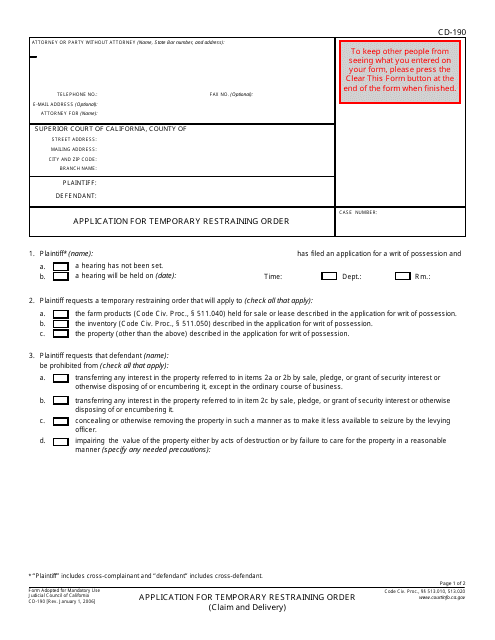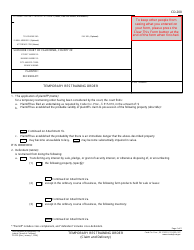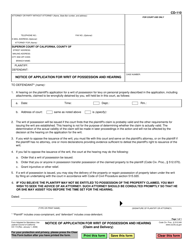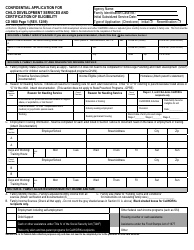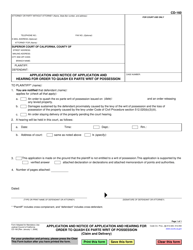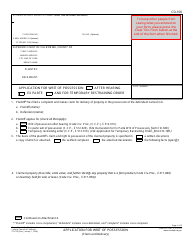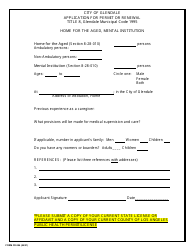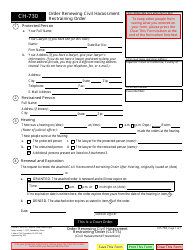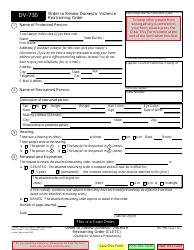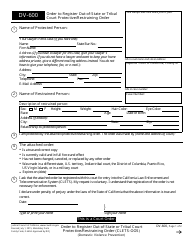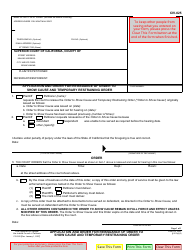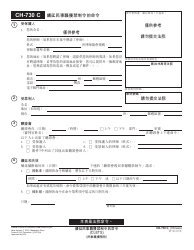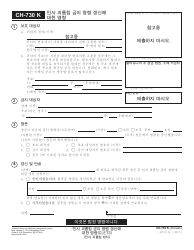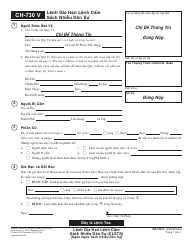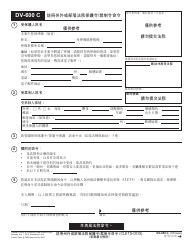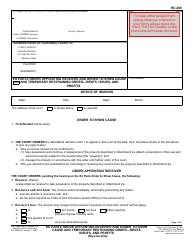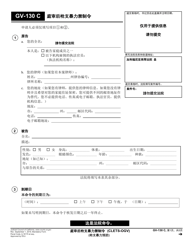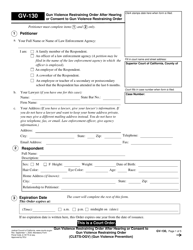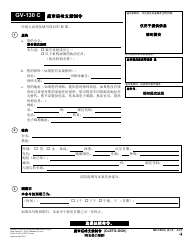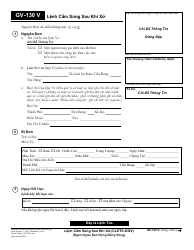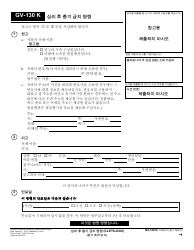Form CD-190 Application for Temporary Restraining Order - California
What Is Form CD-190?
This is a legal form that was released by the California Superior Court - a government authority operating within California. As of today, no separate filing guidelines for the form are provided by the issuing department.
FAQ
Q: What is Form CD-190?
A: Form CD-190 is the Application for Temporary Restraining Order in California.
Q: What is a Temporary Restraining Order?
A: A Temporary Restraining Order is a court order that provides immediate protection against domestic violence, harassment, or other threats.
Q: Who can use Form CD-190?
A: Victims of domestic violence, harassment, or other threats in California can use Form CD-190 to apply for a Temporary Restraining Order.
Q: What information is required on Form CD-190?
A: Form CD-190 requires information about the petitioner, the respondent, and the reasons for seeking the Temporary Restraining Order.
Q: Is there a fee for filing Form CD-190?
A: There may be a fee for filing Form CD-190, but fee waivers are available for those who cannot afford it.
Q: What happens after filing Form CD-190?
A: After filing Form CD-190, a judge will review the application and may grant or deny the Temporary Restraining Order.
Q: How long does a Temporary Restraining Order last?
A: A Temporary Restraining Order usually lasts for a short period, such as 20-25 days, until a hearing can be held to determine if a permanent restraining order should be granted.
Q: What should I do if the respondent violates the Temporary Restraining Order?
A: If the respondent violates the Temporary Restraining Order, you should immediately contact law enforcement and report the violation.
Q: Can I extend a Temporary Restraining Order?
A: Yes, you can request an extension of a Temporary Restraining Order if you still need protection after the initial order expires.
Form Details:
- Released on January 1, 2006;
- The latest edition provided by the California Superior Court;
- Easy to use and ready to print;
- Quick to customize;
- Compatible with most PDF-viewing applications;
- Fill out the form in our online filing application.
Download a fillable version of Form CD-190 by clicking the link below or browse more documents and templates provided by the California Superior Court.
